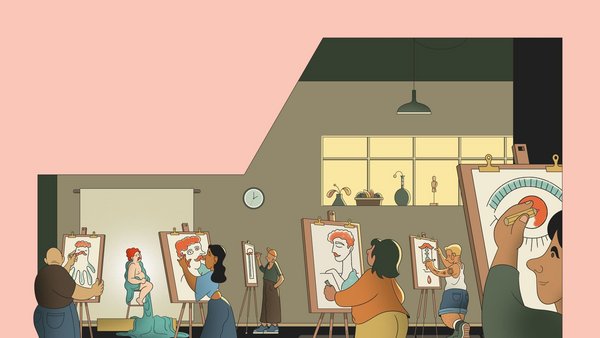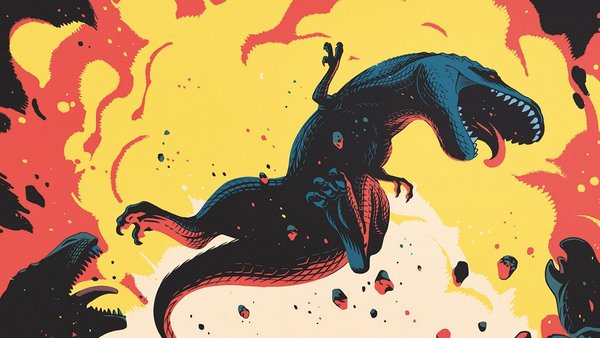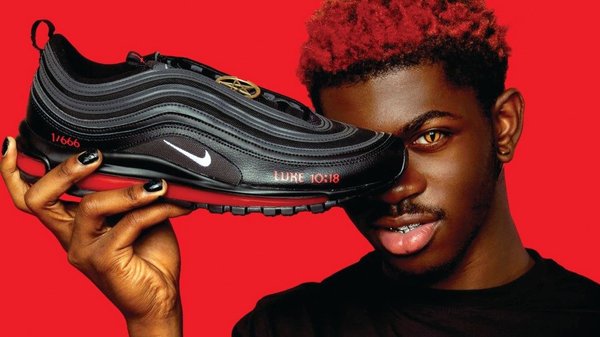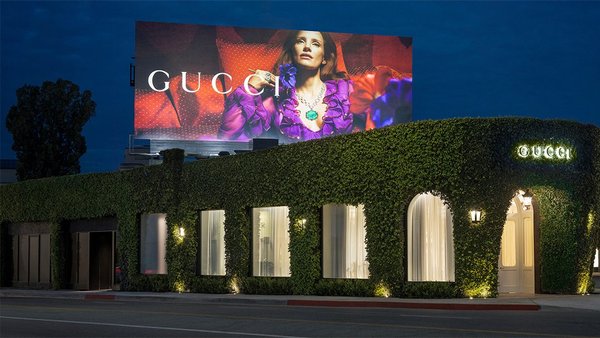EA Sports FC’s David Jackson on rebranding an icon /
The VP of brand at EA Sports FC reveals how the gaming franchise is striking out on its own and how it will continue to inspire gamers of all stripes
Adam Richmond
/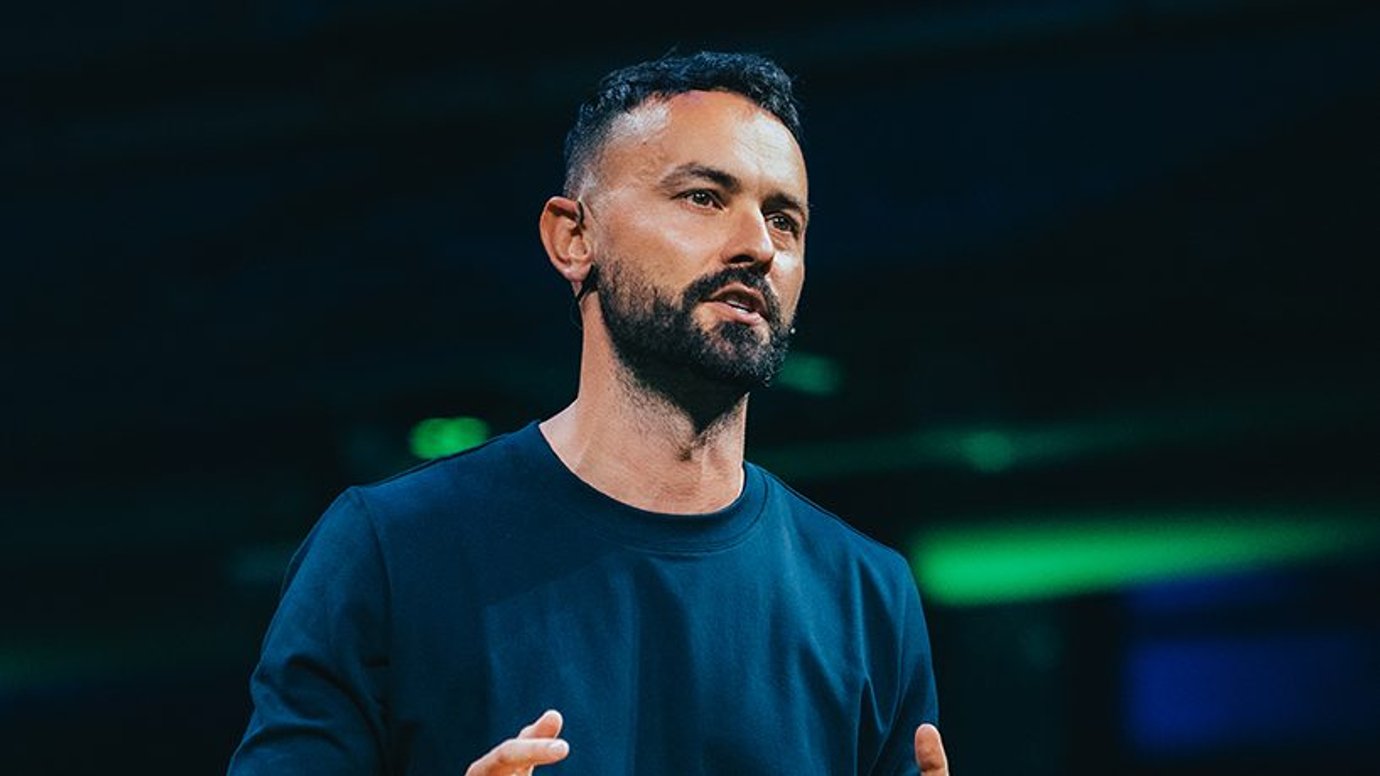
Fifa isn’t just the world football governing body, it’s become the byword for the only football video game that counts, thanks to EA Sports’ focus on authenticity in bringing the beautiful game to digital life. But all good things must come to an end – even a partnership that has reportedly brought in $20bn in sales over the past 20 years and built a gaming audience of 150 million players.
EA Sports announced its decision to not renew its Fifa license in May last year, opting to strike out with its own football title EA Sports FC, with FC24 due to launch in September. David Jackson, VP of brand at EA Sports FC, says there was no great drama behind the split, ‘It was far more about EA Sports’ ambition on behalf of our fans than it ever was about the differences that we had strategically with the Fifa organisation.’ He is quick to stress the significance of the partnership too, ‘For 30 years we had a very valuable relationship with Fifa – we became the de facto official football game in the world,’ but notes that contractual limitations were getting in the way of EA’s ambitions and the different kinds of in-game experiences that could be added.
EA’s commitment to reality remains as exacting as ever, says Jackson. The team has built relationships with 300 global football partners, including Uefa, and FC24 promises to feature over 19,000 fully licensed players, 700+ teams and 30+ leagues. He adds: ‘Realism is one core tenet of what I think makes an exceptional sports game — we talk about authenticity and innovation all the time – you want to play with Kylian Mbappé at PSG in the Champions League on a really immersive Parisian night against Real Madrid, and have all that energy present, and that’s our job at EA Sports.’
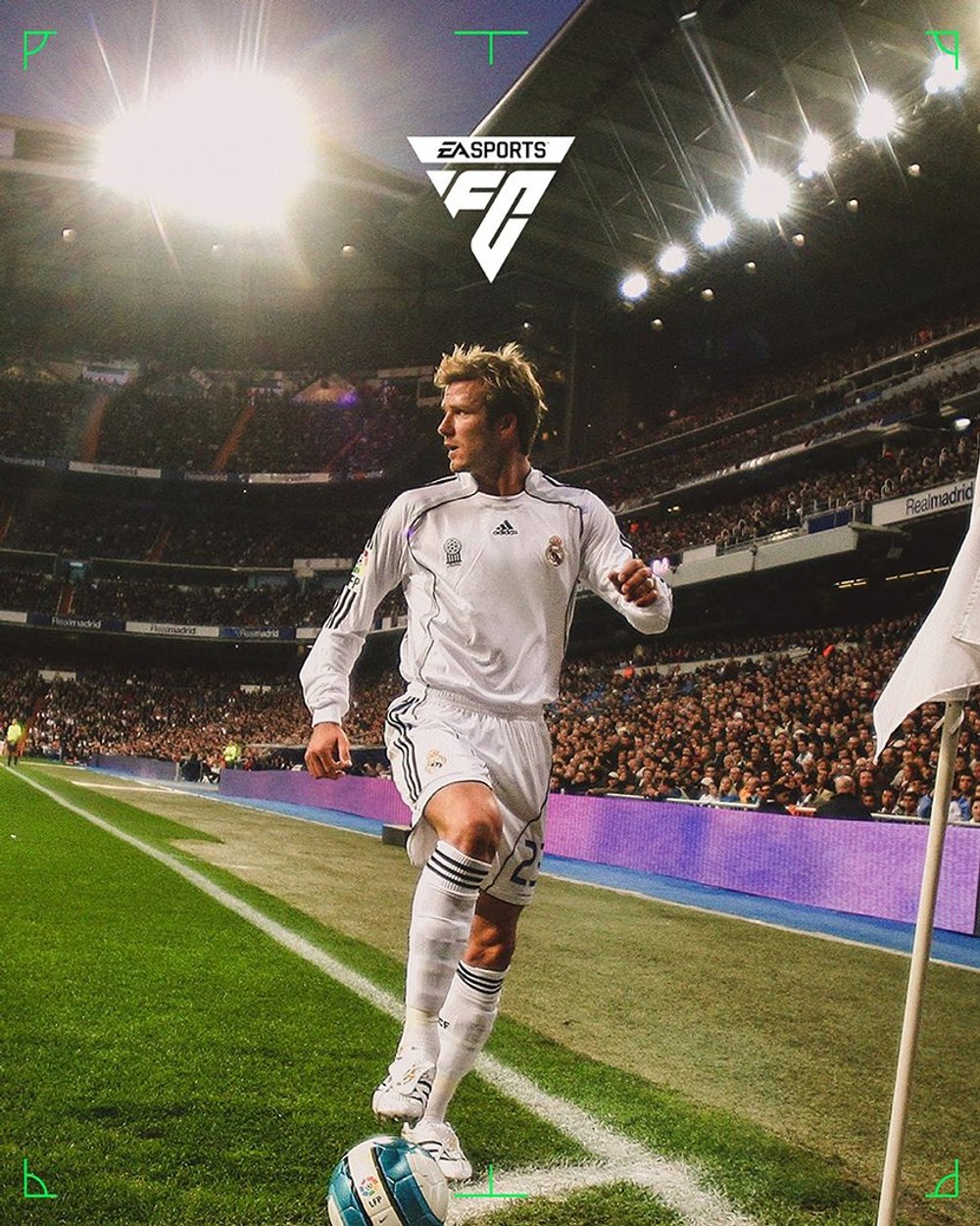
Uncommon London was assigned the vital task of giving EA Sports FC an identity strong enough to capture gamers’ imagination stripped of the Fifa heraldry. The agency landed on a simple but meaningful shape that was too perfect to pass up: the triangle. Jackson notes that not only is ‘football predicated on triangles’ but in the actual video game ‘the triangle over the athletes’ head, which symbolises control, has been something that players have known and loved, and signifies an EA Sports experience’. One look at the marketing assets, logo and typography, and the possibilities of the sharp new visual identity are clear. The team made a splash in April sharing the new look with football fans at over 100 matches across the biggest leagues in the world, with limited-edition club specific merch spread far and wide. Meanwhile, icons of the game such as David Beckham and Zinedine Zidane also shared the logo on their social platforms. ‘This isn’t a one and done,’ says Jackson. ‘It’s not a product that we will put on the shelf and hope for the best on. It’s a product and an experience that will build over time, over many years.’
Jackson talks to Contagious about the changing landscape of games marketing, and his hopes of building a billion-strong fanbase for the franchise.
David Jackson, EA Sports FC
What’s the big mistake that brands make when they market to gamers?
They try and affect a set of language or behaviours that they think will resonate. When, in fact, they affect this condescension to a cohort of gamers, and forget to talk to very specific things about the product and the experience. You wouldn’t necessarily sell a sneaker by affecting how somebody might run in it, you need to affect a feeling or an experience, and you talk in human terms about what the comfort might be like or what the technology inside of it might be like in order to augment your running experience.
What are the key challenges of marketing and advertising to gamers? We see a lot of people talk about gamers as if they are one cohort.
It’s always very dangerous to label people in any sense. However, marketers like to do that because it simplifies things for them and then they can build strategies and tactics around how to target those people, but I think it’s probably easier now to define people who aren’t gamers: my mum’s a gamer, she will play the Sunday Times crossword on her phone; my wife will (still) play Candy Crush endlessly.
We need to make sure that we’re not treating this cohort of individuals completely differently because of the way they express their passion. Gaming is now pervasive in popular culture to such an extent that it’s just people and it’s probably better to talk to them about their passion points. For us, that’s football.
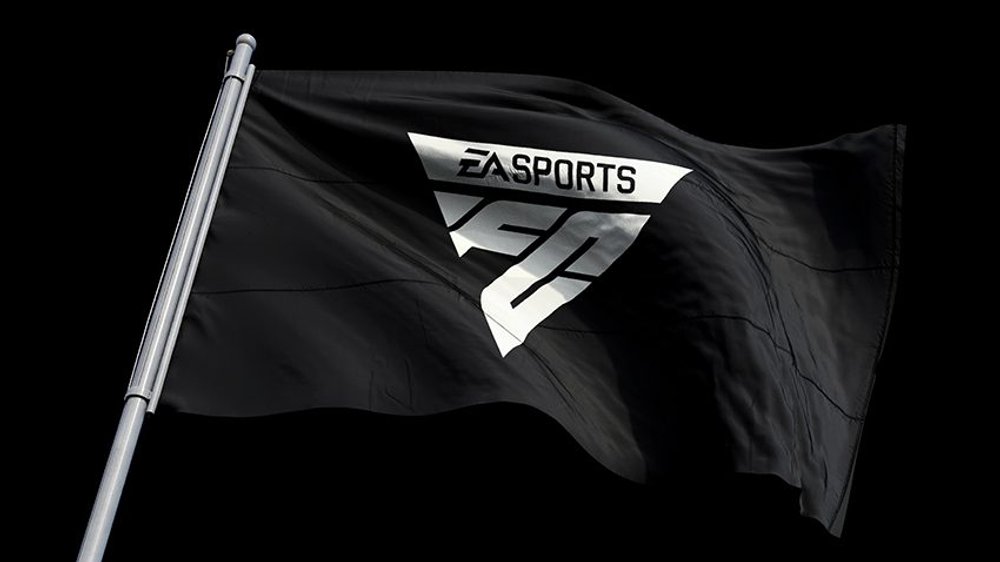
David Jackson, EA Sports FC
Speaking of football… what drove the split with Fifa?
Over time, as our ambition extends and the desire from our fans grows in terms of the experiences that we can offer, you find that contractual limitations can get in the way. What if we wanted to expand into broadcast technology? What if we wanted to offer memberships? What if we wanted to engage other partners into the space that [Fifa] don’t have an official relationship with. That becomes challenging. The deal was coming up for review and renewal, and we’re really intentional at EA Sports about understanding the value we get from partners and the value we give back. When we analysed the depth of value we were redeeming from Fifa, it didn’t meet with our expectations, and some of the limitations that were being placed on us were preventing us from delivering on the things that we know our fans will expect from us in the future.
Tell us about the process of working on the EA Sports FC rebrand.
It was good that we found Uncommon. There was a huge amount of trust that we built really early on in the process. I’ve worked in agencies where for certain companies the absolute intention every single year was to take an idea all the way through the qualitative research, get it hammered by people and then start again. And you just sort of masquerade that process as progress. We shouldn’t applaud negative intent and we shouldn’t revere waste. Nils [Leonard, co-founder of Uncommon] reveres quality, bravery and intent, and we shared those tenets from the very beginning. For me the really important things are simplicity, story and commitment, but I think our values have real parallels.
So right from the off there was the shared understanding that we’re going to get to something really good. It’s challenging to start with a blank piece of paper. It’s quite daunting. We’re dealing with 30 years of beloved IP that lives rent free in the minds of lots and lots of football fans, people who desperately want to be able to live out their fantasies on the pitch. And overcoming that with something as simple as an identity and a vision is challenging. It’s going to take time via osmosis for that thing to inspire people.
EA Sports FC is investing in the real world game – is that part of the work to inspire people?
In terms of objectives, it is about brand osmosis and making sure that people equate an EA Sports experience to a positive experience in a sport. But beyond that, it genuinely is a way for us to invest in football because we know we draw a lot of value from the game.
Actions express priorities and the actions that we want to take for EA Sports FC are both in the virtual world of football where we can democratise our platform and share it with as many millions, if not billions, of people as possible, and then in the real world of the sport, where we think that we exist to grow the love of football. We have a real responsibility there to build and inspire the next generation of football fans. If we don’t do that, then we don’t have a job.
We’re doing that through something called FC Futures. That’s a multi-year plan for us to invest more than $10m in grassroots football. We’re building pitches with a number of our partners, with Uefa, the Premier League and La Liga. We’re building safe places to play, so local communities can come and engage in football. We’re making sure that people have the equipment to be able to actually inspire their love of football – you need a ball, if you don’t have that it’s going to be pretty challenging to love football. And then we’re using that digital platform to help inspire a better quality of coaching and a better quality of grassroots play. So taking the coaching drills from within the video game, lifting them out and putting them on a free-to-access platform like YouTube so coaches and players can go there and work through the practices and drills, and use them in their coaching progression in the real world.
There were both positive and negative responses to the rebrand. Did the haters get to you?
I think you either stand for something or stand for nothing in most things you do in your life. And when you deal in something as passionate and partisan as football, you either define yourself as being ‘something’ or not ‘something else’ – I am an Everton fan, I’m distinctly not a Liverpool fan. The middle ground is suspicious to football fans and not necessarily taking a position can be seen as being somewhat weak in that sense.
It’s really tough to want to both stand out and fit in, and we took the perspective that in order to be truly visible, we had to take a position. If people disliked it, that’s their view, and they’re entitled to it – if people loved it, that’s obviously an ideal outcome. The worst possible thing, though, would have been that they ignore it. Mediocrity would have been an outcome that I couldn’t have lived with.
David Jackson, EA Sports FC
Has how you launch a game changed?
The way in which we used to sell games [was] what we would call [the] ‘set and forget’ approach. This is a little while ago now, but you would build the game, you would build a ton of content around it, try and build groundswell towards it, then the game would hit the shelves, and then you would hope for the best. [During the holidays] you might do something else to re-engage people.
The world genuinely doesn’t work like that anymore. We’ve moved from disc to digital. We’ve moved to a live service world where the content is refreshing on an almost daily cadence. There are still mechanics we employ around groundswell and build-up towards a moment in time – usually the launch of the game, that’s an important moment. There’s then an important moment immediately after that to gauge critical and commercial reception. You have to understand whether you’ve hit the cultural zeitgeist, certainly in a game that doesn’t launch every year. But in our world, football is live; [EA Sports] FC is live as well. And that kind of treadmill of live service content that mirrors the real world of football necessitates that we have to parallel track, and we have to be a mirror to the real world of the sport. So now we don’t really have critical moments in time, the drumbeat of always-on content is the norm in our world now.
In this new ‘live’ gaming context, how hard is it to be suitably agile for a big company like EA?
Necessity is the mother of all invention. We’ve had to [be agile] because you can’t be behind the eight ball on a live service product, and you can’t wait for the outcome and then reflect the outcome because the moment is gone. We spend a huge amount of time and a lot of energy on being agile. And the investment that you have to put into that is pretty significant. I think it comes down to values. For me, simplicity is really important in being agile in the modern world. There’s so much stuff; it’s really tough to filter the signal from the noise, or at least the quality from the quantity. If you think about the biggest companies in the world, they spend outsized resources on executing against simplicity.
I think about it a lot. I think about the simplest, most essential ‘what ifs’ in the world: what if we could all understand each other and you get to Google Translate. What if everything was available everywhere and you get to the Cloud. These are pretty simple, very human questions.
But simplicity takes immense amounts of effort. Being able to make quick decisions, to make simple decisions, and binary yes-nos, and have all of the information at hand, to do that requires a huge amount of investment. EA has done an exceptional job over time of investing in the bedrock of talent, quality and experience so that when something happens, we can react in real time. There are very few people who get to make that call and on the whole they make a pretty good one, and pretty quickly.
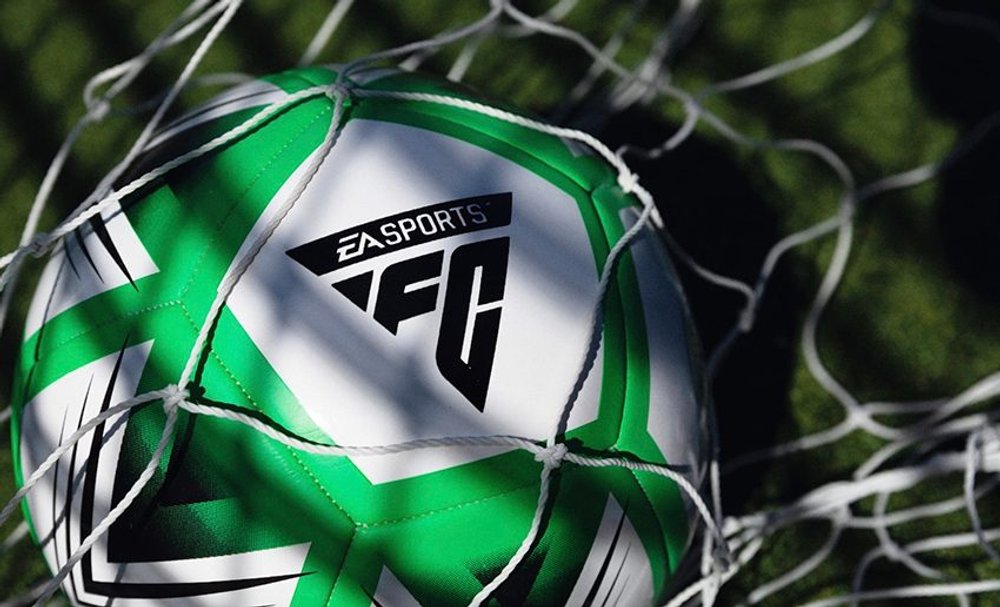
What is your current ‘what if’?
It’s probably not as profound as ‘what if we could all understand each other’, but what if we could get to a billion fans? We’re at 150 million. There are lots of different measures and it’s very tough to get an absolute player count that we can stand behind – 150 million players is actually very conservative. But to get a billion players, a lot of the mechanisms and the constructs and the core foundational strategies of the organisation would have to shift to enable that because then you’re not just talking about consoles and PCs. You’re talking progressively about smartphones, and ways in which you can engage parts of the world that currently don’t have access to smartphones. It’s really important for us that this ‘what if’ remains a challenge and remains a bar [to reach], because that’s the bar that football has met over time. Football’s expansion has been so accelerated because it’s brutally simple, but as a result, it’s really, really human. And it’s become really famous. As much as we revel as a society in dissonance and like to consider ourselves different from each other, football is a great example of how similar people actually are. It talks to all populations. It cuts across cultures and borders, and it’s boundless in its capacity to grow and scale.
We need to take some inspiration from that and understand that football can operate at all altitudes of society because it’s simple and it’s effective and it’s human and it’s true. If we can take some of those core tenets and understand how we can use them in order to be able to engage many, many more fans in our product, then that ‘what if we could have billion players’ becomes a little bit more within reach.
Want more of the same? /
We don’t just write about best-in-class campaigns, interviews and trends. Our Members also receive access to briefings, online training, webinars, live events and much more.
